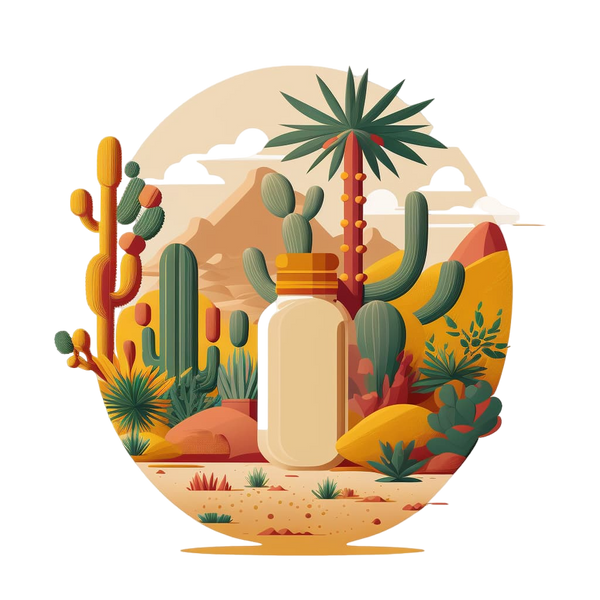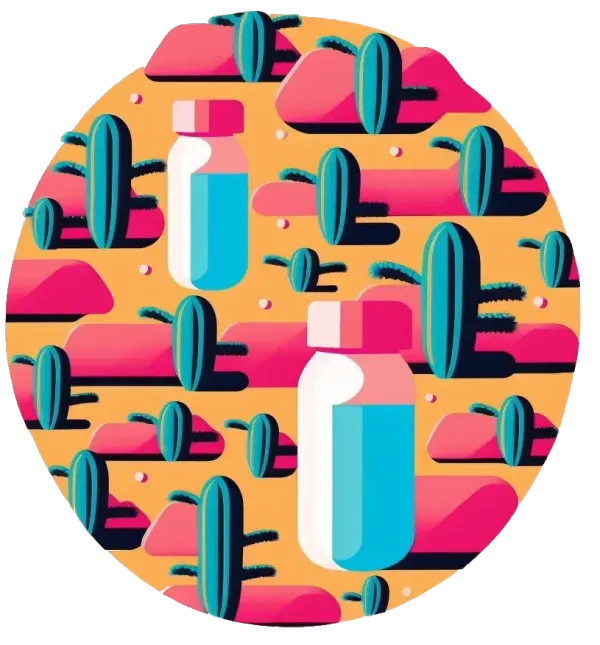If you're following my work, you'll remember that I highly advise lowering or eliminating caffeine before a dry fast, especially if you drink high amounts. Withdrawal symptoms are on par, or even worse than the keto flu symptoms. Stack them together and you've bought yourself a one-way ticket to Pain Town. This doesn't mean that I will always eliminate caffeine. In fact, if you're experienced in dry fasting, or meet the required criteria, calculated caffeine ingestion at the right times can make your dry fast more powerful and easier.
Without going into too much detail, because trying to give you a standard answer is impossible. Dry fasting to each person is like Chess, with a near infinite amount of possibilities. I can only give you ideas as to what I do, as I'd need specific personal information to guide anyone else through the correct steps.
Coffee and Catecholamines When Fasting

In this study: Adrenaline and noradrenaline secretion induced by caffeine was investigated in the perfused cat adrenal glands. Caffeine (10-80 mM) caused a dose-dependent increase in both adrenaline and noradrenaline secretion when applied for 1 min and 10 min after replacing Ca2+ with 10(-5)M EGTA in the perfusion solution. The ratio of adrenaline to noradrenaline was about 1:1

Dry Fasting Stress on Catecholamines and the Nervous System

In this Study: To prevent a fall in blood glucose during fasting, the counter-regulatory response is activated. An important component of this pathway involves the autonomic nervous system and release of epinephrine from the adrenal gland. This autonomic response is often referred to as a reflex, implying the output is hardwired and inflexible. Here we show the strength of the terminal synapse that controls epinephrine release is actually highly plastic. Fasting leads to a long-lasting increase in synaptic strength by a process that requires neuropeptide Y and Y5 receptors. In the absence of neuropeptide Y, synaptic strengthening is absent, epinephrine release is reduced, and the mice become hypoglycemic.

Caffeine and Free Fatty Acids (Ketones)

This study found that caffeine can significantly increase ketone production in the body, particularly β-HB, by up to 116% within four hours of intake. This increase in ketones could potentially supply 5-6% of the brain's energy needs. Caffeine does this by raising the levels of free fatty acids (FFA) in the blood, which are then converted to ketones in the liver. The effect of caffeine on ketones was similar to that of an overnight fast. Combining caffeine with medium-chain triglyceride (MCT) supplements might extend this ketone increase, although more research is needed. The study's main limitation was its short duration of only 4 hours.


Keep in mind that you can see free fatty acid (ketone) levels drop and then rise. The study participants were given food with coffee after a 12-hour fast and as their first meal. It makes sense that ketone levels dropped with the ingestion of glucose and a rise in insulin. But the eye-opening result is that blood ketone levels jumped back very quickly. This indicates that caffeine acts on glycogen stores and lipolysis mechanisms, most likely through the upregulation of cortisol, adrenaline, and other hormones that lower glycogen levels through higher energy expenditure. I'm willing to bet that without food in this study, the ketone levels would not have dropped, but rather would have increased, although there is a chance that the initial caffeine dose and adrenaline response would squirt glucose into the blood, liberated from the liver. Adrenaline response does desensitize over time, so this effect may not be consistent.
What does this mean for fasting and the keto flu?
More steady transition to ketones which helps you regulate the glucose crash by promoting gluconeogenesis from fat burning (lipolysis) and keeping energy up from liberation of free fatty acids. Initial adrenaline also stimulates the release of glycogen, so blood sugar will rise as the body dumps stored sugar. This speeds up ketone production too, mimicking the alternate strategy that I've talked about before preparing for a dry fast by including high amounts of coconut oil/MCT oil, along with butyric acid for its synergistic effects. Think of this as a potential bridge between the two states of energy production: glycolysis and ketolysis. This strategy is most synergistic with things like Intermittent Fasting.
Caffeine Withdrawal and the Ketosis Shift
Like I said earlier, mixing caffeine withdrawal and the ketosis shift can ruin your fast. However, mixing in small amounts of caffeine before dehydration levels set in can be highly rewarding. You need to understand your body, and your diet to know when the window for caffeine closes. However, the first 12 hours of the fast are a pretty safe bet for it. Now with dry fasting, you have to take into consideration water levels. Abstaining from all calories and all water will provide the fastest entry into hypertonic stress and insulinotropic effects, but caffeine may provide more positives than negatives.
Because I am in the process of trying to achieve a min-max effect that blends both comfort and power, I have been experimenting with caffeine. For myself, based on my urine-specific gravity tests and diet correlations, I've found that I can still take in caffeine around 36 hours into a dry fast with minimal adverse effects. This allows me to increase comfort by about 200% during the first 2 days of a dry fast. I've also noticed that this strategy makes the prep and refeed 10(x) times more important because it is pretty extreme on the body. You'll notice that this is cutting it close to the acidotic crisis where new homeostasis mechanisms are introduced by the body. This includes lowering adrenaline/epinephrine by up to 80% while increasing noradrenaline/norepinephrine by about 25%. As I showed you above, coffee raises the catecholamines in approximately a 1:1 ratio.
[Warning] This indicates that coffee past the early stages may have a profound effect on the counter-regulatory changes that are necessary to safely dry fast.
What kind of caffeine do I use, you ask? I'm partial to a black espresso which balances the minimal amount of water with a diuretic effect. But if you're trying to min-max to the absolute limit, then dry swallowing caffeine pills (or with a sip of water) may be what you're looking for.
If you love these types of articles let me know, sub to the site, and I'll make more based on my findings and experiments. If you really like them, then you may be a budding biohacker! Join us on Discord, and if you want to have some deeper conversations, schedule a chat with me :) Good luck on your dry fasting journey!
Additional Notes on Coffee's Benefits:
I think it would be good to reconsider coffee’s place in the diet and in health care. Please remember I am simply noting benefits, so this information is skewed.
Coffee drinkers have a lower incidence of thyroid disease, including cancer, than non-drinkers.
Caffeine protects the liver from alcohol and acetaminophen (Tylenol) and other toxins, and coffee drinkers are less likely than people who don’t use coffee to have elevated serum enzymes and other indications of liver damage.
Caffeine protects against cancer caused by radiation, chemical carcinogens, viruses, and estrogens.
Caffeine synergizes with progesterone, and increases its concentration in blood and tissues.
Cystic breast disease is not caused by caffeine, in fact caffeine’s effects are likely to be protective; a variety of studies show that coffee, tea, and caffeine are protective against breast cancer.
Coffee provides very significant quantities of magnesium, as well as other nutrients including vitamin B1.
Caffeine “improves efficiency of fuel use” and performance: JC Wagner 1989.
Coffee drinkers have a low incidence of suicide.
Caffeine supports serotonin uptake in nerves, and inhibits blood platelet aggregation.
Coffee drinkers have been found to have lower cadmium in tissues; coffee making removes heavy metals from water.
Coffee inhibits iron absorption if taken with meals, helping to prevent iron overload.
Caffeine, like niacin, inhibits apoptosis, protecting against stress-induced cell death, without interfering with normal cell turnover.
Caffeine can prevent nerve cell death.
Coffee (or caffeine) prevents Parkinson’s Disease (Ross, et al., 2000).
The prenatal growth retardation that can be caused by feeding large amounts of caffeine is prevented by supplementing the diet with sugar.
Caffeine stops production of free radicals by inhibiting xanthine oxidase, an important factor in tissue stress.
Caffeine lowers serum potassium following exercise; stabilizes platelets, reducing thromboxane production.





